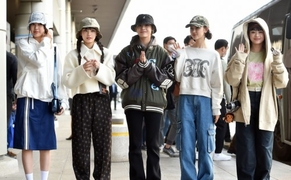 |
| President Lee Jae-myung speaks during an Emergency Economic Task Force meeting at the presidential office in Yongsan, Seoul, on July 30. / Source: Yonhap News |
President Lee Jae-myung underscored a pro-business stance on July 30, just two days before the U.S. is set to impose reciprocal tariffs, pledging to reduce excessive economic penalties that he said are discouraging corporate activity. He announced plans to launch an "Economic Penalty Rationalization Task Force" aimed at easing burdens on businesses and boosting growth.
At a meeting of the Emergency Economic Task Force held at the presidential office in Yongsan, Lee said, "There are concerns that in Korea, even minor business missteps could lead to prison sentences, which deter domestic investment." He called for reforms to limit the overuse of embezzlement charges and other punitive measures against corporate executives.
Lee vowed to immediately activate the new task force and push for "clear goals, such as a 30% reduction in one year," beginning with the upcoming National Assembly session. He also stressed regulatory reform, questioning whether imposing criminal sanctions in addition to financial penalties meets international standards.
"Unnecessary and administrative regulations should be eased or abolished to ensure businesses have autonomy and can engage in creative activities," he said.
Lee emphasized that his administration would be a "practical, market-oriented government" that supports businesses as engines of growth. He also announced that the current Emergency Economic Task Force would be transitioned into a "Growth Strategy Task Force" under the finance minister, focusing on long-term policies.
Regarding his flagship "National Growth Fund," Lee promised to expedite plans for a public-private fund worth over 100 trillion won to invest in future strategic industries, including AI and renewable energy, while addressing economic polarization through fair growth initiatives.
"We must rapidly shift to an economy centered on AI-driven advanced industries and renewable energy to secure Korea's future growth," he said, adding that labor market reform and stronger cooperation between large firms and smaller suppliers would be critical.
Most Read
-
1
-
2
-
3
-
4
-
5
-
6
-
7





















